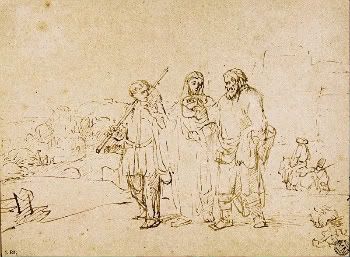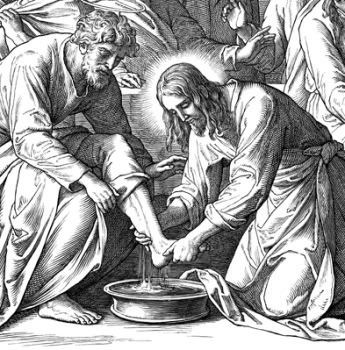You may have noticed that over the last couple of months I've used a lot of art in my posts. I guess Lent kind of put me in the mood to do some more "devotional" type posts and I find that a good painting often goes very well with a more devotional post. So I wanted to give credit to the source of most of the paintings I've put up on my blog and the source is my favorite painter, the great Dutch artist Rembrandt van Rijn. Rembrandt's art appears in posts from April 10th, 12th, 19th and 26th.
With my admiration of his work one would think that I would have read something about the life of Rembrandt but up until preparing to write this blog post I hadn't. And as with most subjects I want to be quickly educated on, my source was Wikipedia.
Rembrandt was born in Leiden in the Netherlands and lived from 1606 to 1669. He lost three of his four children to early deaths and also his wife, most likely to tuberculosis. The aspect of Rembrandt's life I was most interested to learn about was his religion. I had expected, with the amazing Biblical scenes he is known for, that Rembrandt's religious side would be explored in the article on Wikipedia but I found that not to be the case. In fact, Rembrandt seems to be a little mysterious spiritually. His father was part of the Dutch Reformed Church and his mother was Roman Catholic. I read one site that speculated that not much was known about Rembrandt spiritually because he didn't want to completely embrace or reject either the faith of his father or mother. Whatever the case may be, I think his paintings have been a spiritual blessing to many people.
Rembrandt is not the only artist that has shown up on my blog. I also like to occasionally use Gustave Dore's Bible illustrations among many other sources. But lately I've used a lot of Rembrandt so I wanted to focus on him in this post.










